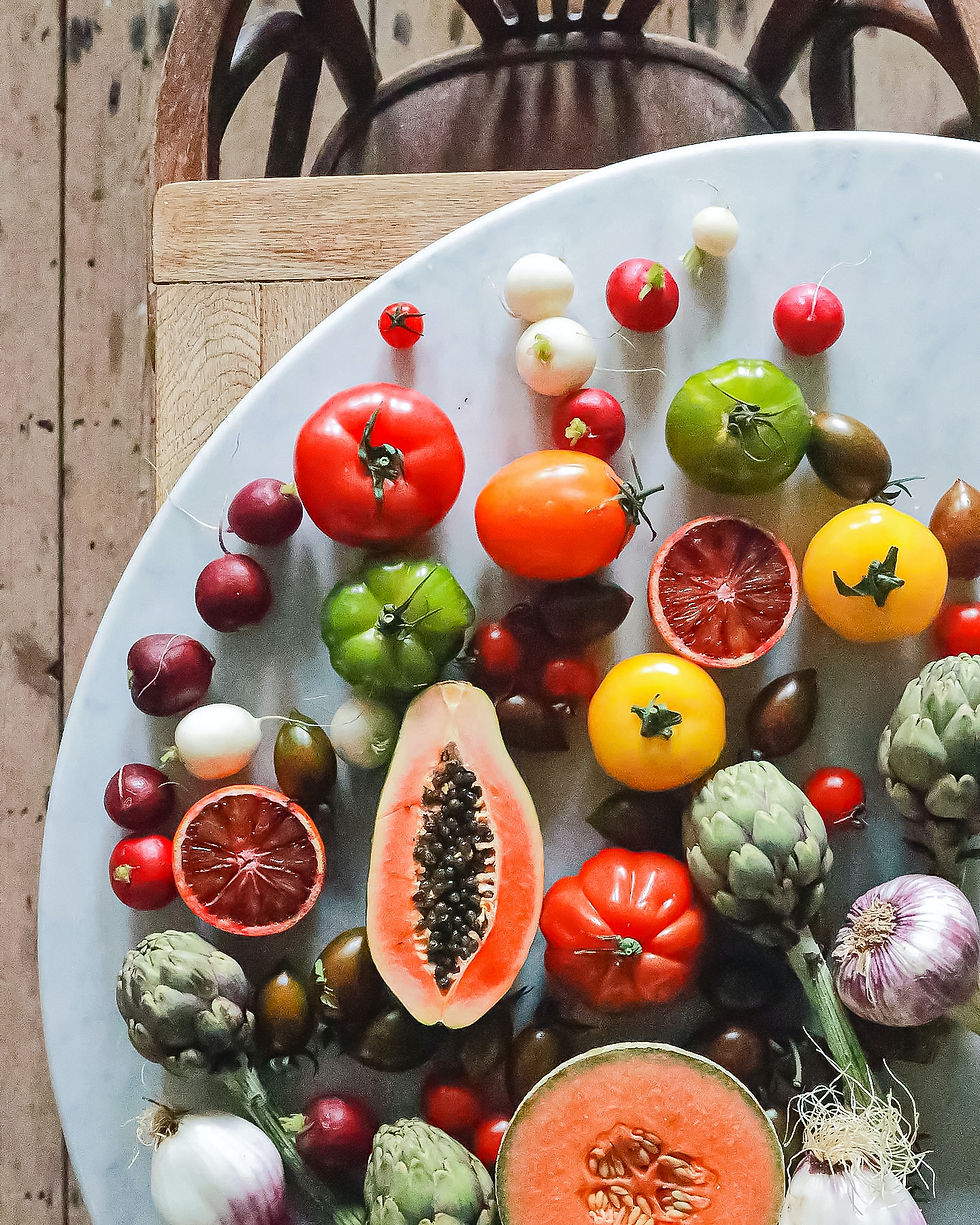The Clean Fifteen & Dirty Dozen.
- Kim Smolders

- 11 mrt 2022
- 2 minuten om te lezen
Bijgewerkt op: 22 mei 2022

We all know that today our food is not as clean or pure as it should be. Due to large-scale farming practices, government policies & subsidies, and the change in the way we eat, we have seen the amount of pesticides, herbicides and insecticides being used on products increase significantly over the last half century.
Every year, the Environmental Working Group (EWG) publishes two lists - the Clean Fifteen and the Dirty Dozen. These lists are based on tests done on thousands of conventionally grown fruit and vegetables in the US, both local and imported, and determine the amount of pesticide residues found. The list is meant to inform and educate consumers, and empower them to make the right decisions when it comes to consuming produce grown conventionally.
Many will argue that the amount of chemicals found on produce is so minimal that it will not have a negative effect on health. However eating different types of fresh produce farmed the conventional way on a daily basis not only has a combination effect, but also a compounding effect, and small amounts will eventually lead to greater exposure.
There have been many studies showing the negative affect on health of consuming produce that is not organically grown and that has been treated with chemicals, even in small amounts. Not only are these chemicals hormone and endocrine disruptors, but the produce is also significantly lower in vitamins, minerals and polyphenols, all essential to health and wellbeing.
Clean Fifteen 2022.
This year, the following produce has made it to the Clean Fifteen list. This is the produce found to have the least amount of pesticide residue. This indicates that even if you do not buy these fruits and vegetables organically, your exposure to chemicals will be minimal after you have washed and cleaned them.
Avocado
Sweet corn
Pineapple
Onions
Papaya
Sweet peas (frozen)
Asparagus
Cabbage
Kiwi
Cauliflower
Mushrooms
Honeydew melon
Watermelon
Mangoes
Sweet potatoes
Dirty Dozen 2022.
The Dirty Dozen list for 2021 is filled with the usual suspects. Summer fruits and berries are notorious for being high in pesticides. It is highly recommended that you buy this produce from an organic source.
Strawberries
Spinach
Kale, collard & mustard greens
Nectarines
Apples
Grapes
Cherries
Peaches
Pears
Bell & hot peppers
Celery
Tomatoes
Buy organic.
The message certainly is - buy organic. Or at least as often as you can. They are always going to have less contamination than produce conventionally grown. If you can not, be sure you thoroughly wash the produce on the Dirty Dozen list. The best way to do this is by soaking the produce in apple cider vinegar or baking soda for 15 to 20n minutes. This will remove the residue of any chemicals used. Even produce on the Clean Fifteen list should be washed as tiny amounts of residue can still be found on these too.
Whilst there is no equivalent list for Europe, it is generally accepted that these lists can be applicable globally, with some local variations.















Opmerkingen